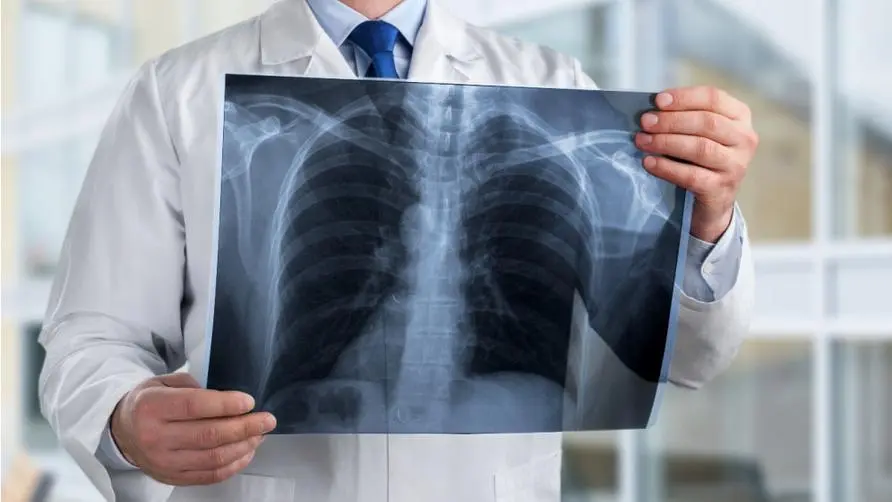The latest results of the "Top Ten Cancers" are out! Nearly half cannot be screened early? "This Cancer" continues to dominate the charts for 15 years

The latest top ten cancer results are released, colorectal cancer has dominated the list for 15 consecutive years
The latest results of the “Top Ten Cancers” are announced! According to the latest cancer registration report from the Taiwan Ministry of Health and Welfare in 2020, the number of new cancers was 121,979, an increase of 725 from 2019. The standardized incidence rate of all cancers was 311.3 per 100,000 population, a decrease of 4.6 from 2019. The median age of occurrence of all cancers in 2020 is 64 years old, the same as in 2019. The median age of occurrence of major cancers, except for colorectal cancer, lung cancer and cervical cancer, is 1 year later, and skin cancer is 1 year earlier. The rest are the same as in 2019.
For some cancer types, the median age of onset is earlier than that of all cancers: oral cancer and cervical cancer are 58 years old, breast cancer and uterine cancer are 56 years old, and thyroid cancer is 50 years old. The top ten cancers (both men and women combined) are colorectal cancer, lung cancer, female breast cancer, liver cancer, oral cancer (including oropharynx and hypopharynx), prostate cancer, thyroid cancer, gastric cancer, skin cancer and non-Hodgkin cancers. lymphoma. Except for the order exchange between gastric cancer and skin cancer, uterine corpus cancer and non-Hodgkin’s lymphoma, the rest of the rankings are the same as in 2019.
Colorectal cancer has the highest incidence in men, and breast cancer still ranks first in the female cancer population
As for men, the number of new cancers in men in 2020 was 63,893. The age-standardized cancer incidence rate in 2020 was 336.2 per 100,000 population, a decrease of 9.2 from 2019. The top ten cancer incidence rates were colorectal cancer, Lung cancer, oral cancer (including oropharynx, hypopharynx), liver cancer, prostate cancer, esophageal cancer, gastric cancer, skin cancer, leukemia, non-Hodgkin’s lymphoma.
According to the table above, the number of new cancers in men is in the same order as in 2019. Looking at women again, the number of new cancers in women in 2020 was 58,086, and the age-standardized cancer incidence rate was 292.8 per 100,000 people, an increase of 0.1 from 2019. Compared with 2019, the standardized incidence order of women is that skin cancer and cervical cancer have moved up to the 9th and 10th places, and gastric cancer has moved up to the 8th place. The other rankings are the same as in 2019. In 2020, the following are breast cancer, lung cancer, colorectal cancer, thyroid cancer, uterine cancer, liver cancer, ovarian cancer, stomach cancer, skin cancer, and cervical cancer.
The changes in the number of new cancers in women in 2020 are gastric cancer moving forward, skin cancer and cervical cancer moving backward, and the rest are the same as in 2019.
The incidence rate of esophageal cancer in men is 15 times that in women! Has the incidence rate of oral cancer been declining in recent years?
Among the top ten cancer categories with large gender differences in standardized incidence rates of cancers between men and women, the standardized incidence rates of oral cancer and esophageal cancer in men are 10.6 times and 14.6 times higher than in women respectively; studies have shown that chewing betel nut is more likely to cause oral cancer than not chewing it. 28 times that of non-smokers, and the chance of oral cancer caused by smoking is 18 times that of non-smokers.
Taiwan Health Promotion Administration points out that betel nut chewers have a five-fold increased risk of gastrointestinal cancer (oral cavity, pharynx, larynx, esophagus) compared to those who do not chew betel nut. If betel nut, tobacco, and alcohol are all used as a habit, the risk of cancer will The risk of upper aerodigestive tract cancer is as high as 10.5 times. The public is reminded that quitting betel nut, tobacco, and alcohol can reduce the risk of oral precancerous lesions and cancer. Regular oral mucosal examinations can detect oral precancerous lesions early, receive biopsy diagnosis and treatment in a timely manner, and effectively block the transformation of precancerous lesions into cancer.
4 types of cancer cannot be screened and treated in advance! Taiwan Health Promotion Administration: Be alert if you have the following symptoms
The Taiwan Health Promotion Administration stated that based on the above cancer rankings, there is currently no evidence-based recommendation internationally to screen asymptomatic persons for thyroid cancer, skin cancer, non-Hodgkin’s lymphoma, and uterine cancer. If the public notices that they have the following abnormal symptoms, please be sure to seek medical treatment and follow the doctor’s instructions for early diagnosis and treatment.
Thyroid cancer: Rapidly growing neck mass, hoarseness, difficulty breathing, persistent cough, difficulty swallowing.
Skin cancer: small raised nodules and raised scaly lumps on the skin.
Non-Hodgkin’s lymphoma: painless swelling of superficial lymph glands in local or systemic areas such as the neck, armpits, groin, etc.
Uterine cancer: abnormal bleeding, including: irregular menstrual cycle, long-term continuous bleeding, sudden heavy bleeding after menstruation has not come for a long time, or bleeding after menopause.
Reduce the risk of death by up to 70%! Make good use of five cancer screenings for early detection and treatment
In addition, the Taiwan Health Promotion Administration also stated that based on WHO and empirical medical evidence, the “5 cancer prevention examinations” Pap smear, mammography, fecal occult blood test, oral mucosa examination, and low-dose computed tomography of the lungs can Effectively reduce cancer mortality and improve survival rates. Taiwan Health Promotion Administration statistical data analysis shows as follows:
Oral mucosal examination: For men who have the habit of chewing betel nut or smoking, the risk of death from oral cancer can be reduced by 26%. The Taiwan Health Promotion Administration subsidizes people over 30 years old who chew betel nut (including those who have quit betel nut) or smokers, and aborigines over the age of 18 who chew betel nut (including those who have quit betel nut), to have an oral mucosal examination every two years.
Fecal occult blood test: A test every 2 years can reduce colorectal cancer mortality by 35%. The Taiwan Health Promotion Administration subsidizes people aged 50-74 to have a fecal occult blood test every two years.
Pap smear examination: It can reduce cervical cancer mortality by about 70%. The Taiwan Health Promotion Administration subsidizes women over the age of 30 to receive a Pap smear test at least once every three years.
Mammography examination: Breast examination every 2 years can reduce breast cancer mortality by 41%. The Taiwan Health Promotion Administration subsidizes women aged 45-69 and women aged 40-44 whose second-degree blood relatives have suffered from breast cancer to receive mammography examinations every two years.
Low-dose computed tomography (LDCT): According to international research evidence, LDCT can reduce lung cancer mortality in heavy smokers by 20%. Taiwan Health Promotion Administration assists the following “two major groups” with low-dose computed tomography examinations every two years. They are men with a family history of lung cancer, men aged 50 to 74 years old, or women aged 45 to 74 years old, and their parents, children or siblings have experienced People diagnosed with lung cancer; and heavy smokers aged 50 to 74 with a smoking history of more than 30 packs/year, who are willing to quit smoking or who have quit smoking within 15 years.
Finally, the Taiwan Health Promotion Administration reminds the public that in addition to cooperating with the government’s relevant epidemic prevention measures, all Taiwanese who meet the conditions for cancer screening should actively participate in the screening. For relevant information, you can go to Taiwan Cancer Medical Center to inquire and receive screening, or use the Health Insurance Autopass APP to check the time of the previous examination to determine whether you are eligible for screening. Relevant screening information can be obtained through Taiwan Cancer Screening Campaign and the medical institution information inquiry website Check.
Source:
Further reading:





